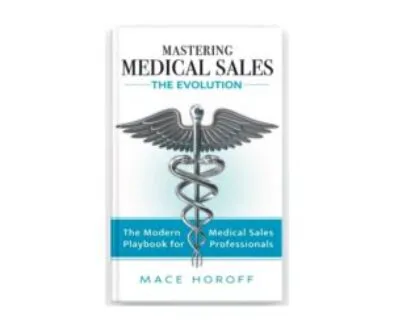The Number One Risk to Overcome in Medical Sales
Risk is part of healthcare and sales professionals who sell to healthcare providers and institutions have risks that they need to manage. Notice that I used the word “manage”—not “eliminate” or “avoid.”
The definition of risk is to expose to danger, harm or loss. Healthcare providers manage risk to the patient, risk to the institutions where they practice, and risk to themselves which include both health risks and financial liability. So what risks do you face as a medical sales professional?
I always discuss risk in my medical sales program because it’s on almost every salesperson’s mind. The biggest concerns involve situations, activities or behaviors that put their business at risk. You might think, for example, that common concerns include thoughts of what happens if a product fails to perform? What if a patient is harmed? What if I get dragged into a lawsuit?
Guess what? Most of the concerns that come up involve risks that are more personal for the medical sales representative. They are concerned that during the course of their sales activities that they might risk the following:
- Blowing a sales opportunity
- Saying something wrong and looking stupid in front of the customer
- Upsetting a customer by taking up the customer’s time with a sales call
- Angering a customer by challenging that customer’s current practices and beliefs
- Being intimidation by a medical professional
- Not getting the sale
- Upsetting a customer during a sales call because the customer’s current supplier is also the customer’s close friend
- Wasting time making a sales call, that in the salesperson’s mind, doesn’t have a snowball’s chance in hell of succeeding
- Closing the sale and not having the confidence to deliver on all promises
There are other risks that concern medical sales professionals that might be holding them back or causing them to play it safe during their sales activities. Notice that most of these perceived risks center around what the customer might think about the sales representative.
But there is one risk, that is greater than all the rest for someone who makes his or her living selling, and that risk is that the customer never thinks about you at all! You’re invisible. You don’t exist. When the customer needs a solution, you and your products or services don’t come to mind.
The best way to avoid this personal risk is to focus on the customer’s and the patient’s risk. Since risk is a major concern for all healthcare providers, when you can demonstrate how to minimize or eliminate risk, your message is valued. You can eliminate the risk of a poor outcome or suboptimal result. You can eliminate the risk associated with treatments or procedures that take too much time. You can talk about the risk of not keeping up with current concepts and community standards of care. You can focus on the economic risk of doing something that costs more.
When you focus on risks to the customer and the patient, the perceived risks to you shrink or vanish. More importantly, the number one risk to you is eliminated because you stay top of mind with customers by keeping them up to date with relative information and products that they need to know about.
Your customers must know the tangible value you provide. It’s your job to make sure that they do and it’s your job to make sure they don’t forget.


